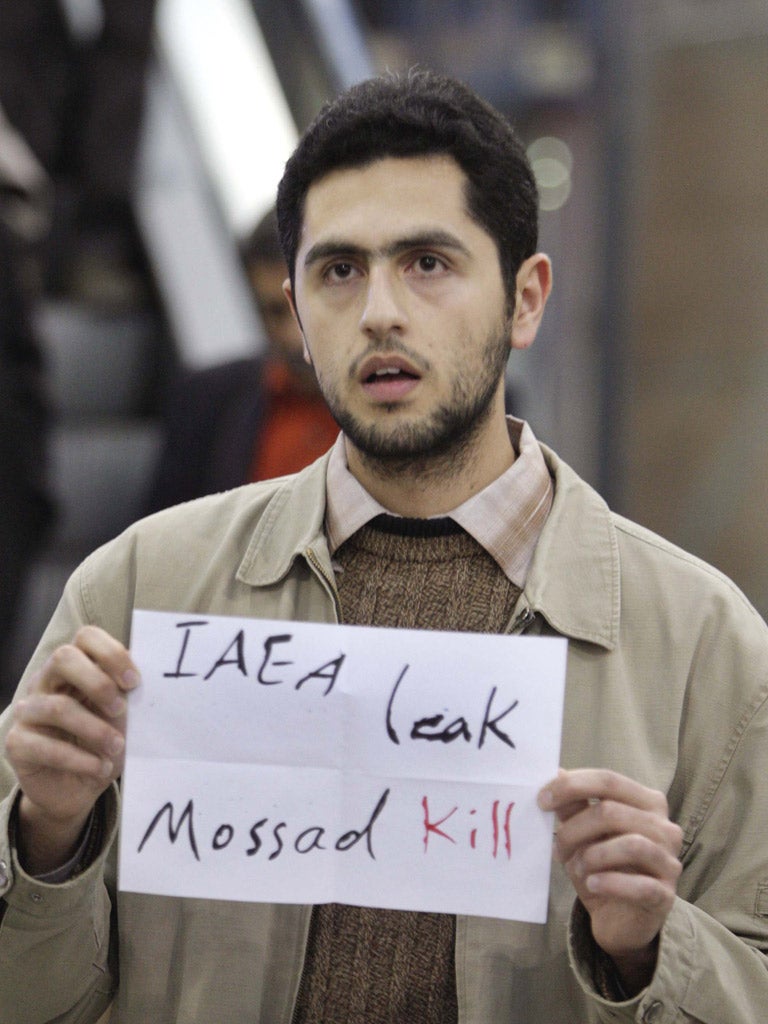Nuclear inspectors met by tension and protests in Iran

A mission by a United Nations team to inspect Iran's nuclear programme – which could play a critical part in whether or not military strikes are ordered against Iran – began yesterday amid acrimony and tension.
Protesters at Tehran airport carried photographs of an Iranian scientist, the latest of several to be assassinated, accusing the International Atomic Energy Agency of being implicated in the death. They claimed that Mostafa Ahmadi Roshan had been interviewed by the agency before he was killed in a targeted bomb attack.
The Iranians had blamed Israel, America and Britain of being involved in the killings, a charge publicly denied by Washington and London. The IAEA insisted it had never met Professor Roshan and had no information about the killing. But the IAEA team will seek permission to talk to key Iranian scientists suspected of working on a weapons programme. They also plan to inspect documents related to nuclear work and secure commitments from the Iranian authorities to allow future visits.
The IAEA's deputy director general, Herman Nackaerts, issued an unusually blunt statement before the visit, stressing that Mahmoud Ahmadinejad's administration must "engage us on all concerns." He added: "So we're looking forward to the start of a dialogue. A dialogue that is overdue."
The UN delegation featured a number of senior officials, including Jacques Baute of France, who led the Agency's investigation into Saddam Hussein's weapons programme in Iraq, and Neville Whiting, of South Africa.
The high-level delegation reflected the prevalent view that the inspections are the "last chance saloon" before military action, being urged by hawks in Israel and the US, is contemplated. However, there is also the feeling that Tehran may decide to offer concessions as it faces sanctions on its oil exports and Western naval manoeuvres in the Strait of Hormuz.
Iran has refused to discuss the weapons experiments it has been accused of conducting for three years, maintaining the allegations are based on "fabricated documents" provided by a "few arrogant countries". It remains unclear how much assistance Tehran now will provide, but even a decision to enter a discussion over the weapons programme would be a major departure from the previous stance of refusing to discuss the matter.
The visit coincides with a debate in Iran's parliament on whether it should "retaliate first" following the EU's oil embargo due to come into effect in July. Senior figures have called for an immediate end to the exports which would cause major problems for states such as Greece and Italy that are heavily dependent on Iranian oil.
Join our commenting forum
Join thought-provoking conversations, follow other Independent readers and see their replies
Comments
Bookmark popover
Removed from bookmarks